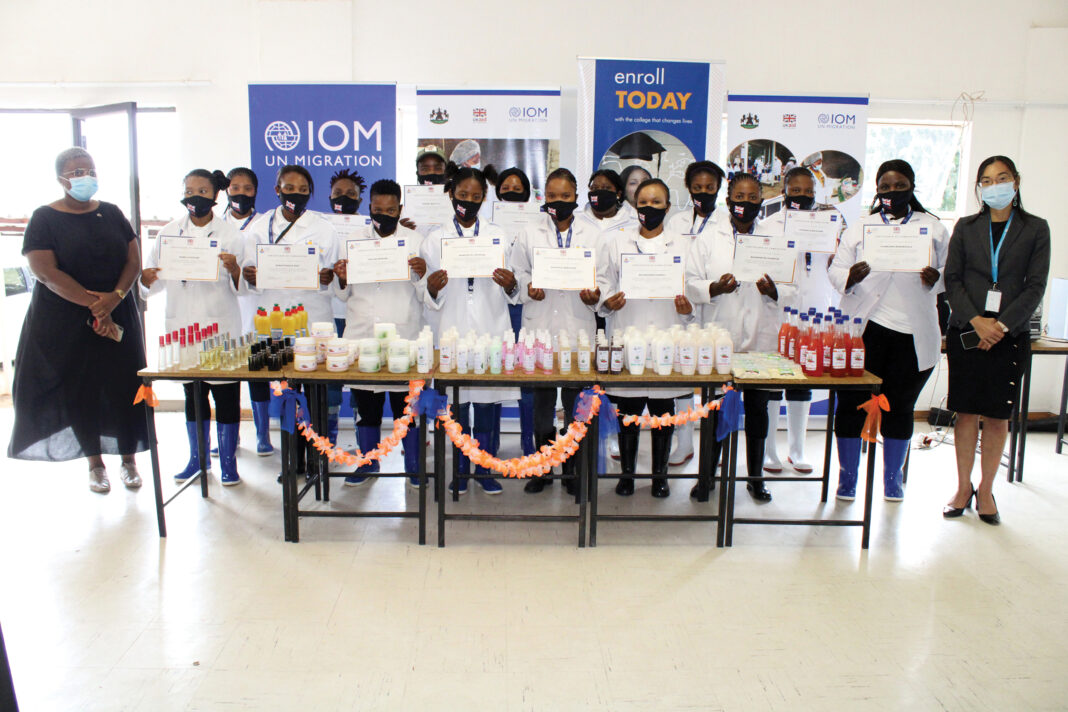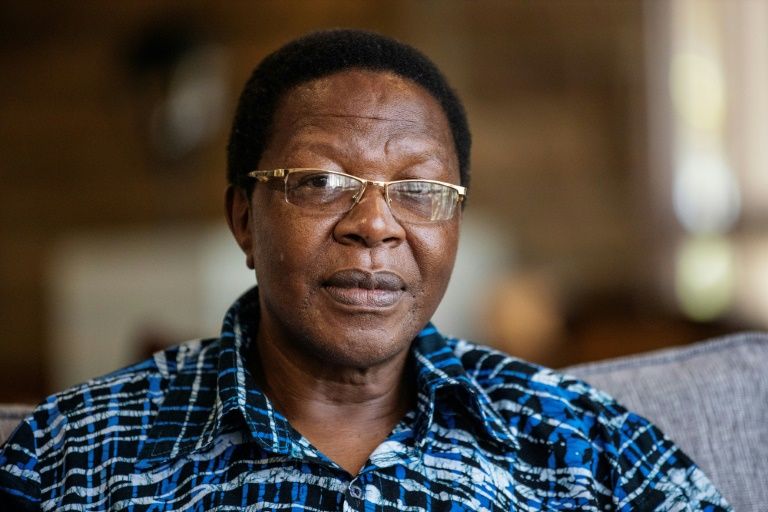By Neo Kolane
Fifteen youths from Qacha’s Nek district have graduated from the skills training at College Cooperative Formulation and Entrepreneurship Business Services (CCEBS) in Mafeteng district.
The International Organization for Migration (IOM) Lesotho has been working closely with the ministry of social development, DICOSEC and DDMT to identify vulnerable returnees and their family members, as well as other extreme vulnerable youth in Mohale’s Hoek, Quthing and Qacha’s Nek district to provide skills training in an effort to restore their livelihoods.
They have acquired skills to manufacture hand sanitizers, body lotion, petroleum jelly, dried soup, beverages, dish washers and other items. The products are organic and made from locally available materials such as rose hip and aloe vera.
In his remarks on Monday, the director of CCEBS, Khothalang Ramoorosi explained the importance of becoming producers and become entrepreneurs who create job themselves rather than waiting for somebody to employ them.
Ramoorosi encouraged the students to be creative and bold as they become entrepreneurs.
Head of Office IOM Lesotho, Eriko Nishimura stated that one of IOM’s key mandates is to ensure vulnerable migrants could be exposed to life changing opportunities and expressed her sincere appreciation to the UK Aid as donor and CCEBS as a committed partner.
On behalf of the United Kingdom High Commission in Lesotho, Lineo Tsikoane thanked IOM for the efforts to improve the lives of Basotho.
Tsikoane addressed told the students that she hopes that they will be exemplary and that this training has truly improved their lives.
She quoted a famous proverb which says “give a man fish, you will feed him for a day, teach a man how to fish and you will feed him for a lifetime.”
A representative of the youths thanked IOM for the support which she said has truly impacted on their lives. She said that they considered this training to be an honour and a great privilege. She reflected on how some of them had previously crossed the border to South Africa often through unofficial channels in search of work.
She said this effort had brought them together and that because their group is from Qacha’s Nek, they were intent on forming a society that would help them market and sell their products.









